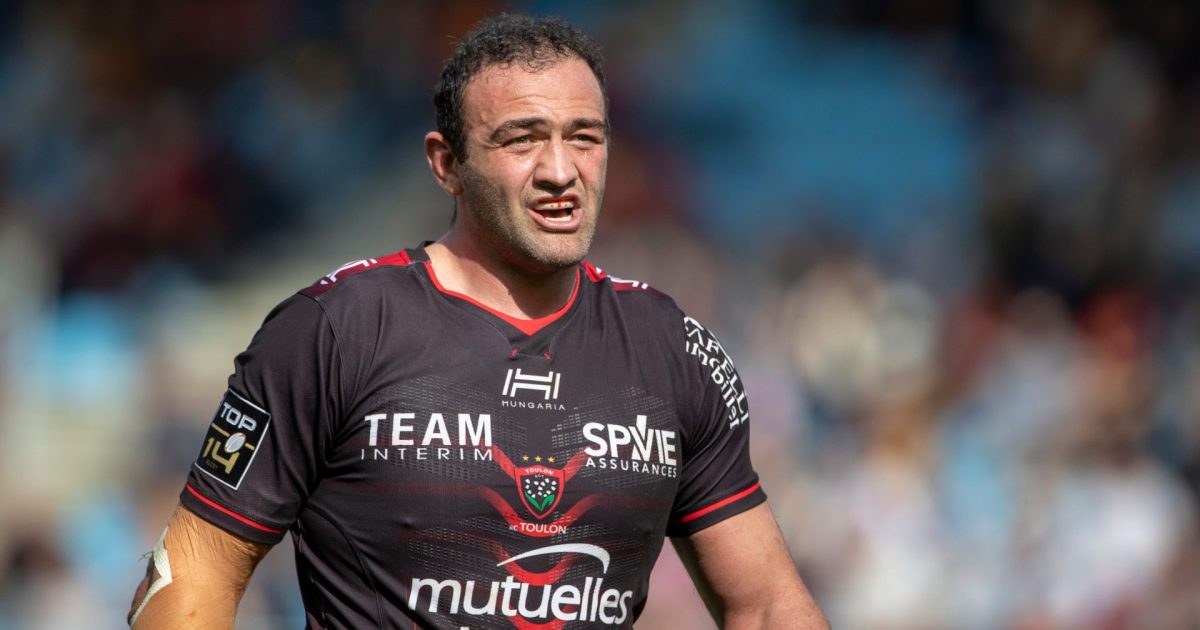The moment Gorgodze pulled out a knife in the Toulon dressing room

Springboks legend Bryan Habana has labelled Mamuka Gorgodze as one of the scariest guys he has ever played with, recalling the jaw-dropping moment the Georgian forward presented All Blacks great Ma’a Nonu with a knife in the Toulon dressing room.
The East European hardman spent six seasons with the powerhouse French club and his time there overlapped with the periods that Habana and Nonu also played for the team under Bernard Laporte.
Habana has now recalled his experiences with Gorgodze, branding him a frightening character you wouldn’t want to get on the wrong side of. Despite this sense of dread cultivated on the rugby pitch, the Georgian was contrastingly a very stylish operator off it and his name cropped up in a story about fashion on this week’s RugbyPass Offload.
Appearing as a guest on the show with Ryan Wilson and Max Lahiff, the now-retired Habana explained how Nonu once gave Gorgodze a rare pair of adidas runners and by way of thanks, the forward handed a knife to the New Zealander the following day at training.
It was a friendly symbol of his gratitude for the gifted sportswear he had received but the sight of a knife in the Toulon dressing room created quite a stir.
Asked who scared him most in rugby, Habana explained: “There were a few Georgians and one of the scariest guys I ever played has got to be Mamuka Gorgodze, I’d literally be scared to walk past that guy. You wouldn’t want to put a foot wrong. There were a few punch-ups on the training field where Mamuka just let rip.
“He is a very stylish guy and Ma’a Nonu had got a pair of these adidas Yeezy, these Kanye West shoes. They were very rare, very intricate. Mamuka had been looking for Yeezy and he asked did Ma’a have an adidas contact. Ma’a was like, ‘Listen, you can have my pair, my size twelves’.
“Ma’a gives Mamuka these size twelve adidas Yeezy and he is so thankful. Ma’s gets to training the next morning and Mamuka comes in and goes, ‘I want to say thank you for the shoes’. He gives him a knife. Ma’a Nonu is like, ‘I don’t know what to do with this?’ Mamuka was, ‘Take it, it’s for you’.
“It was this big symbol of appreciation and respect and everything. But Mamuka Gorgodze gives Ma Nono a knife in the changing room, we are all like, ‘Okay, we’re going to leave now, we’re going to close this door and whatever is happening here please don’t bring it outside’.
“He is an absolute gent, Mamuka, but one of the scariest blokes. You don’t want to step in any way on his wrong side because I saw a few punches being thrown. I’m like, ‘That is why I don’t play in the forwards’, especially because of Mamuka Gorgodze.”
The Georgian was mentioned later on the show when Habana was asked what was the biggest training ground fight he had ever witnessed. “Mamuka Gorgodze and Marcel van der Merwe,” he replied.



































